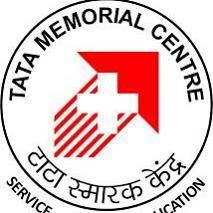预约演示
更新于:2025-05-07
Liver Cancer
肝癌
更新于:2025-05-07
基本信息
别名 CA - Liver cancer、CANCER, HEPATOCELLULAR、Cancer of Liver + [136] |
简介 Tumors or cancer of the LIVER. |
关联
1,624
项与 肝癌 相关的药物靶点 |
作用机制 PD-1抑制剂 |
在研机构 |
原研机构 |
最高研发阶段批准上市 |
首次获批国家/地区 中国 |
首次获批日期2025-02-08 |
靶点 |
作用机制 VEGF-A抑制剂 [+1] |
在研机构 |
原研机构 |
非在研适应症- |
最高研发阶段批准上市 |
首次获批国家/地区 中国 |
首次获批日期2025-01-08 |
靶点 |
作用机制 PD-1抑制剂 |
非在研适应症- |
最高研发阶段批准上市 |
首次获批国家/地区 美国 |
首次获批日期2024-12-27 |
7,042
项与 肝癌 相关的临床试验NCT05091593
A Hybrid Type I Randomized Effectiveness-Implementation Trial of Remote Treatment of Depression in Rural Community Cancer Centers
In an effort to reduce rural-urban disparities and improve the quality of cancer care for these patients, the objectives of this study will be to: (1) adapt the intervention to maximize effectiveness for rural, low-income patients, (2) test the effectiveness of the adapted intervention, and (3) prepare for implementation of the intervention in rural, low-income communities.
开始日期2026-06-01 |
申办/合作机构 |
NCT05041335
Wet Heparinized Suction: A Novel Technique to Enhance Tissue Acquisition for Endoscopic Ultrasound Guided Fine Needle Biopsy (EUS-FNB) of Solid Abdominal Masses: A Randomized Prospective Trial
The purpose of this research is to compare the amount and quality of tissue obtained by EUS-FNB when the device is flushed with an anticoagulant or "blood thinner" vs. saline a salt water solution as well as the use of a microsieve in order for the doctor to look at the tissue to check the acceptability of the specimens before sending for analysis.
You will be randomly assigned (like a flip of a coin) to have either the blood thinner or the salt water solution placed within the needle being used to sample your abdominal tumor and to have either a sieve used or not.
You will be one of 42 participants enrolled in this data collection study which includes 1 sites in the United States.
You will be randomly assigned (like a flip of a coin) to have either the blood thinner or the salt water solution placed within the needle being used to sample your abdominal tumor and to have either a sieve used or not.
You will be one of 42 participants enrolled in this data collection study which includes 1 sites in the United States.
开始日期2026-03-15 |
CTRI/2025/02/079994
Phase 2 study evaluating the addition of immune-sensitizing radiotherapy and biomarker-driven low-dose nivolumab in locally advanced resectable gastroesophageal junction/gastric cancers - NISaRGA
开始日期2026-02-05 |
申办/合作机构 |
100 项与 肝癌 相关的临床结果
登录后查看更多信息
100 项与 肝癌 相关的转化医学
登录后查看更多信息
0 项与 肝癌 相关的专利(医药)
登录后查看更多信息
204,586
项与 肝癌 相关的文献(医药)2025-12-31·Annals of Medicine
Performance of contrast-enhanced ultrasound liver imaging reporting and data system for differentiation of patients at risk of hepatocellular carcinoma and liver metastasis
Article
作者: Wu, Zhougui ; Huang, Weiqin ; Ke, Xiaohui ; Tang, Lina ; Lin, Ruoxuan ; Du, Zhongshi
2025-12-31·OncoImmunology
Induction of cell death in malignant cells and regulatory T cells in the tumor microenvironment by targeting CD137
Article
作者: Liu, Haiyan ; Nickles, Emily ; Lee, Kang Yi ; Schwarz, Herbert ; Sun, Rui ; Le Lin, Jia ; Mei, Yu ; Xia, Runze
2025-12-31·Journal of Medical Economics
The indirect costs of five cancers in Egypt: years of life lost and productivity costs
Article
作者: Wahab, Karim Abdel ; Hassan, Ahmed ; Hughes, Robert ; Meiwald, Anne ; Bencina, Goran ; Fox, Aimée ; Amritlal, Sneha ; Pöllinger, Bernadette ; Morsi, Ahmed
9,279
项与 肝癌 相关的新闻(医药)2025-05-05
·生物世界
撰文丨王聪编辑丨王多鱼排版丨水成文司美格鲁肽(Semaglutide)是诺和诺德公司开发的一款降糖药物,用于治疗 2 型糖尿病,2021 年 6 月,美国 FDA 批准了司美格鲁肽作为减肥药上市(商品名为Wegovy)。该药物是一种胰高血糖素样肽-1(GLP-1)受体激动剂,能够模拟其作用,减少饥饿感,从而减少饮食、减少热量摄入,因此在减肥方面效果突出。除了用于治疗2型糖尿病和肥胖,司美格鲁肽还被发现能够显著降低心脏病发作和中风风险、治疗膝关节炎、降低癌症风险、帮助戒酒等,此外,还有研究显示,司美格鲁肽能够降低慢性肾病以及阿尔茨海默病的风险。2025 年 4 月 30 日,弗吉尼亚联邦大学医学院、伦敦国王学院等机构的研究人员在国际顶尖医学期刊《新英格兰医学杂志》(NEJM)上发表了题为:Phase 3 Trial of Semaglutide in Metabolic Dysfunction–Associated Steatohepatitis 的临床研究论文。这项在全球 37 个国家的 253 个临床试验点开展的随机安慰剂对照 3 期临床试验结果显示,司美格鲁肽治疗能够停止甚至逆转代谢功能障碍相关脂肪性肝炎(MASH),这是首个表明司美格鲁肽对 MASH 患者有益的大规模临床试验。代谢功能障碍相关脂肪性肝病(MASLD),以前称为非酒精性脂肪肝病(NAFLD),是一种由肝脏脂肪过多引起的长期肝脏疾病。已成为全球最常见的慢性肝病之一,在全球和亚洲的患病率接近 30%。其更严重的形式是代谢功能障碍相关脂肪性肝炎(MASH),与肥胖以及 2 型糖尿病、心脏和循环系统疾病等状况密切相关。随着时间的推移,肝脏中脂肪的堆积可能会导致炎症、肝纤维化、肝硬化甚至肝癌。在这项新研究中,研究团队选择将司美格鲁肽作为 MASH 的潜在治疗药物进行研究,因为这类药物有助于减少脂肪堆积和肝脏瘢痕,对 MASH 的患者有益。该团队此前发表在《柳叶刀》和《新英格兰医学杂志》上的规模较小的研究表明,司美格鲁肽对于 MASH 患者有益。在 2021 年 5 月 27 日至 2023 年 4 月 18 日期间,800 名参与者被随机分配接受每周一次 2.4 毫克司美格鲁肽注射或安慰剂治疗,并辅以生活方式咨询。超过半数的参与者患有 2 型糖尿病,约四分之三的参与者患有肥胖症。在经过 72 周的治疗后,司美格鲁肽治疗组的 62.9% 的参与者脂肪性肝炎(肝脏炎症且伴有脂肪堆积)症状减轻,而安慰剂组的参与者中这一比例仅为 34.3%。研究结果还显示,司美格鲁肽治疗组中有 36.8% 的参与者的肝纤维化情况有所改善,而安慰剂组中这一比例为 22.4%。研究团队还发现了其他益处——司美格鲁肽治疗组参与者的肝酶水平和其他反映肝纤维化的血液指标也有所改善,体重减轻了 10.5%,安慰剂组仅为 2.0%。这些结果表明,在患有代谢功能障碍相关脂肪性肝炎(MASH)且伴有中度或重度肝纤维化的患者中,每周一次 2.4 毫克剂量的司美格鲁肽治疗,改善了肝脏组织学结果。研究团队表示,这些结果令人非常振奋。MASLD 在全球范围内日益严重,此次试验将为 MASH 患者带来真正的希望。尽管这些结果需要谨慎对待,但分析表明,司美格鲁肽可以成为治疗这种晚期肝病的有效工具。此外,该研究团队将对来自 37 个国家的近 1200 名参与者进行为期长达五年的研究,以收集司美格鲁肽对长期肝脏并发症影响的数据。相关阅读:2025 年 3 月 29 日,在国际顶尖医学期刊《新英格兰医学杂志》(NEJM)上发表了题为:Oral Semaglutide and Cardiovascular Outcomes in High-Risk Type 2 Diabetes 的临床研究论文。这项临床研究显示,口服版司美格鲁肽可显著降低患有 2 型糖尿病、动脉粥样硬化性心血管疾病和/或慢性肾病患者的心血管事件(例如心脏病发作、中风)发生率。该研究的领导者、北卡罗来纳大学糖尿病护理中心主任 John Buse 教授表示,心脏病发作和中风是糖尿病最常见的也是最严重的并发症之一。司美格鲁肽一直是我们在糖尿病患者中降低心脏病发作和中风风险的主要手段。而能够通过口服方式提供这种高效疗法是一项重大进步。2024 年 10 月 30 日,哥本哈根大学和诺和诺德公司的研究人员在国际顶尖医学期刊《新英格兰医学杂志》(NEJM)发表了题为:Once-Weekly Semaglutide in Persons with Obesity and Knee Osteoarthritis 的研究论文。这项临床研究显示,司美格鲁肽能够显著减轻体重,并显著减轻肥胖相关的膝关节炎引起的疼痛(止痛效果与阿片类药物相当),并提高他们参与运动的能力。这也是第一次证实 GLP-1 受体激动剂类新型减肥药物可以治疗关节炎。研究团队表示,司美格鲁肽治疗带来的这种改善可能部分源于体重减轻导致的膝盖负荷减少。但同时司美格鲁肽也具有抗炎作用,这可能有助于解释患者的疼痛得到了显著缓解。论文链接:https://www-nejm-org.libproxy1.nus.edu.sg/doi/10.1056/NEJMoa2413258https://www-nejm-org.libproxy1.nus.edu.sg/doi/10.1056/NEJMoa2501006https://www-nejm-org.libproxy1.nus.edu.sg/doi/10.1056/NEJMoa2403664设置星标,不错过精彩推文开放转载欢迎转发到朋友圈和微信群 微信加群 为促进前沿研究的传播和交流,我们组建了多个专业交流群,长按下方二维码,即可添加小编微信进群,由于申请人数较多,添加微信时请备注:学校/专业/姓名,如果是PI/教授,还请注明。点在看,传递你的品味
临床结果上市批准临床3期
2025-05-05
·药时代
正文共: 2046字 3图预计阅读时间: 6分钟(图片来源:Pharma Dive)不久前,全球知名媒体Pharma Dive基于2024年年度销售额数据更新了全球Top50重磅药物名单,药时代团队对这份名单进行了较为系统、细致的梳理和有趣的分析。目前里面没有中国公司的产品,本来我们相信,用不了多久,中国公司的产品将榜上有名。可分析之后发现,原来中国公司已经具备上榜的实力了!现在开始逐步分享,希望对广大中国企业和朋友们有点滴参考价值。欢迎批评指正!多谢!销售额合计3718.5亿美元,平均每款74.37亿美元既然上面提到目前排行榜上没有中国药企及其产品,那么就要知道标准是什么,目前的差距有多大。50款重磅药物2024年的年度销售额合计3718.5亿美元,所以平均每款74.37亿美元,中位数59.15亿美元。全球年度销售额排行榜的最高是来自默沙东的新晋药王Keytruda(K药),为294.8亿美元,最低的是来自艾伯维的治疗慢性淋巴细胞白血病的小分子BCL-2抑制剂唯可来(维奈克拉),为25.8亿美元。所以,这份排行榜的门槛就是25.8亿美元。现在,我们基于搜索到的信息来看看中国药企的实力和上榜的可能性。百济神州研发的针对套细胞淋巴瘤(MCL)、慢性淋巴细胞白血病(CLL)等一系列适应症的BTK抑制剂泽布替尼(Zanubrutinib,商品名:Brukinsa)是首个在美国获批的中国抗癌药,凭借优于伊布替尼的疗效数据快速放量。根据2024年百济神州全年业绩公告,其核心产品泽布替尼(商品名百悦泽)的全球销售额为26.44亿美元(约合人民币188.59亿元),同比增长105%,占公司总营收的69.3%。如果采用26.44亿美元这个数据,那么百济神州的泽布替尼不仅可以上榜,而且可以位居第49名,取代阿斯利康的C5补体蛋白产品舒立瑞,因为后者2024年的销售额是25.9亿美元,这也意味着,艾伯维的唯可来(维奈克拉)将被挤出TOP50排行榜。百济神州的另一款重磅产品,治疗非小细胞肺癌、霍奇金淋巴瘤的PD-1抑制剂替雷利珠单抗(Tislelizumab,商品名:百泽安)通过与诺华合作拓展欧美市场,2024年全球销售额约6.21亿美元。另一款来自中国的PD-1抑制剂则是信达生物的信迪利单抗(Sintilimab,商品名:达伯舒)。信达负责大中华区市场,海外授权礼来共同开发,虽然美国上市受阻,但东南亚市场增长。2024年全球销售额:约5.26亿美元。有实力冲击排行榜的后备军包括:恒瑞医药的PD-1抑制剂卡瑞利珠单抗(Camrelizumab,商品名:艾瑞卡)获批的适应症主要包括肝癌、食管癌,面临的挑战包括国内集采降价压力,海外布局取得新进展很关键。复星医药的复必泰(mRNA新冠疫苗,与BioNTech合作),2024年全球销售额因疫情需求减少较2023年下降,市场主要在中国港澳台及东南亚地区。恒瑞医药的吡咯替尼(Pyrotinib,商品名:艾瑞妮),针对HER2阳性乳腺癌,是中国首个原创HER2靶向药,东南亚市场表现亮眼。康方生物的卡度尼利单抗(PD-1/CTLA-4双抗,AK104),作为全球首个PD-1/CTLA-4双抗,定价优势显著。信达生物的PCSK9抑制剂信必乐(IBI306),中国首个自主研发的PCSK9抑制剂,2023年8月获批上市,主打适应症高胆固醇血症,定价更低(年治疗费用约2万元人民币,仅为进口药的1/3)。中国新药全球化的挑战与机遇“不出海,就出局。要上榜,先出海!”现在,中国制药界已经达成以上共识。中国创新药全球化面临专利布局、市场竞争和政策环境的多重考验,加速海外临床和商业化进程仍是关键挑战;在PD-1、GLP-1、ADC、TCE等拥挤赛道中,差异化布局成为突破口。国内集采政策倒逼药企转向创新与国际化,而欧美市场之外其它国家和地区的准入则是下一步发展的核心。药时代将持续跟踪报道,欢迎广大朋友们关注、批评指正!参考资料:Pharma Dive官网38笔!596亿美元!跨国药企2025年重磅交易达成,中国公司贡献很大关税阴云下,大型药企并购热情不减,哪些中国药企可能被收购?2024年制药行业并购TOP1028.4亿美元!4月中国创新药出海汇总其它公开资料图片来源:微信订阅号AI38笔!596亿美元!跨国药企2025年重磅交易达成,中国公司贡献很大2025-05-02【直击现场】「星起点」宣讲会直播:50万资金+专家辅导,寻找下一个代谢病创新药突破者!2025-04-30百济神州索托克拉冲刺上市,引领BCL2抑制剂新纪元!2025-04-30版权声明/免责声明本文为原创文章。本文仅作信息交流之目的,不提供任何商用、医用、投资用建议。文中图片、视频、字体、音乐等素材或为药时代购买的授权正版作品,或来自微信公共图片库,或取自公司官网/网络,部分素材根据CC0协议使用,版权归拥有者,药时代尽力注明来源。如有任何问题,请与我们联系。衷心感谢!药时代官方网站:www.drugtimes.cn联系方式:电话:13651980212微信:27674131邮箱:contact@drugtimes.cn点击这里,查看更多精彩!
财报上市批准医药出海
2025-05-05
·动脉网
药械协同步入新时代。近两年,国内创新药企业靠着BD在营收上增加了不少数字,但多数产品管线离商业化兑现还有相当长的距离。在创新药这个以10年为周期的行业中,药企想跑出成绩,必须寻找新的增长曲线,而医疗器械,正成为众多药企选中的加速器。药企跨界做器械并非什么新鲜事,但过去很多跨界多是一些技术含量较低的领域,谈不上什么战略层面的目标,更多只是短期利益的考量。随着创新药一哥恒瑞的入局,可以看到药企对于药械协同已经进入从自己所擅长疾病领域的思考,洞察其生态产业链平台的短板,进而突围的新时代。如果说医药的研发是和时间赛跑,那么找准药械结合的平衡点,就是国内药企以强生为目标发展新产业生态的重要一步。01创新药一哥悄然跨界恒瑞医疗已将脚步踏入医疗器械的版图之中。作为国内的创新药龙头,恒瑞的产品管线涵盖了肿瘤、心血管、自免等众多领域,包括艾瑞昔布、阿帕替尼、吡咯替尼、卡瑞利珠单抗以及甲苯磺酸瑞马唑仑等药物的上市也让恒瑞的销售步步高涨。然而,恒瑞真正和其他企业拉开距离的,除了研发管线的丰富程度外,更重要的是其具有前瞻性的战略布局。2015年的药审改革让国内创新药行业进入飞速发展时代,可就在2016年,恒瑞投资5亿元成立苏州恒瑞医疗器械有限公司,专注于医疗设备、高值耗材和整体解决方案的研发。恒瑞器械承载着集团从医药产业向医疗健康产业拓展延伸的战略任务。2025年1月,苏州恒瑞医疗器械有限公司自主研发的首款全系列国产化ECMO系统,正式获得国家药品监督管理局批准上市。这一成果标志着我国在高端医疗器械自主研发和产业化方面取得重大突破,打破了相关技术长期被国外垄断的局面。此次恒瑞医疗获批的ECMO系统由主机、循环套包、动静脉插管、升温仪和穿刺套包等部件组成,是首个全系列国产化的ECMO系统。其核心部件采用国内首创的全磁悬浮驱动ECMO血泵和多模态控制等创新技术,确保运行高稳定性和低溶血性。临床试验结果显示,系统达到预期临床终点,且未发生与试验用医疗器械相关的不良事件和器械缺陷,有效性和安全性卓越。恒瑞ECMO系统的成功获批,不仅实现了国产设备自主研发突破的战略意义,还实现了临床使用成本显著降低的战术意义。因为恒瑞不仅是研发出了设备,还攻克了膜肺关键材料PMP膜丝的生产工艺,原材料“卡脖子”的问题将一去不复返,真正实现ECMO系统的全产业链国产替代。和过去一些药企跨界做一些低值器械产品不同,恒瑞在一开始就全力高端医疗设备和高值耗材的研发,从产品最初的概念设计到最终临床应用,以及耗材的突破,全面覆盖医疗器械的全生命周期。这种深耕细作的研发,使得恒瑞一鸣惊人。在ECMO之外,恒瑞还在肿瘤介入、外周介入、神经介入等领域广泛布局,像CVAD(介入式心室辅助系统)和IABP(主动脉内球囊反搏系统)等产品的研发正在进行。可以看到,当前恒瑞选择的项目多数是国外品牌所主导,像心室辅助装置市场就由雅培和强生所占据。恒瑞初入器械领域就瞄准了高端医疗器械国产替代的时机。更重要的是,凭借着恒瑞在医药领域的积累,未来药械协同的创新打法,将成为恒瑞差异化竞争的核心动力,只是这条路并非坦途。02药械协同,并不容易药械协同的路,信立泰用了16年才初窥门道。说起信立泰,这家成立于1998年的老牌药企也有过风光时刻。2018年,其年营业收达46.52亿元,净利润高达14.58亿元,备受二级市场投资者追捧。然而,2019年集采中的意外丢标,使得其业绩持续走低,经营压力凸显。好在2009年信立泰上市时,便成立了全资子公司深圳市信立泰生物医疗工程有限公司,从事医疗器械研发,并在后续10多年的时间里陆续建设自身研发能力。历时多年,总投入10多亿元,围绕载药核心技术,打造了支架载药涂层技术平台、球囊载药涂层技术平台、精准靶向给药输送技术平台及多种合金材料的结构设计和加工技术等。在业绩持续下滑、市场份额被蚕食的情况下,信立泰加速了自身的转型,树立了药物研发和医疗器械并行的发展主线。医疗器械方面,信立泰的布局覆盖了脑血管、心血管、心脏实体和外周血管四大细分领域以及心内科、心外科、神内科、神外科、肾内科和血管外科六大科室。神经介入领域的Maurora雷帕霉素药物洗脱椎动脉支架系统,截至2024年底已经累计植入超5万条,还有AlphaStent冠脉支架以及LAMax左心耳封堵器等产品也陆续获批上市。信立泰近几年医疗器械业务营收(单位:亿元),数据源自企业财报只是从营收来看,医疗器械业务虽增长较快,但基数较低,2024年其医疗器械营收3.05亿元,同比增长41.68%,但占比不足10%。值得注意的是,核心器械产品雷帕霉素药物球囊营收1.37亿元,毛利率高达75.5%。从结果来看,虽然信立泰希望在自己的核心业务领域实现药械协同打法,尝试为相关科室提供整体解决方案。特别是瞄准医生处方习惯较为稳固的慢病领域,希望通过整合“药物+器械+服务”的一体化方案,持续强化商业模式。但在实际落地过程中,药械协同还未展现出理想中的效果。器械商业化是一个长期过程,要形成规模效应还需时日。信立泰也意识到了器械研发进度的迟滞拖累了药械协同商业模式的规模化落地,开始引入AI技术希望加快研发速度。例如在开发左心耳封堵器时,便利用AI对大量的临床数据进行分析,从而对左心耳封堵器的形状、尺寸、材料等进行优化,使其能够更好地适应不同患者的左心耳形态和生理需求。在临床试验阶段,面对海量的数据,AI的加入可以对临床试验数据进行深度挖掘,发现数据之间的潜在关联和规律,从而更好地评估器械的性能和安全性,为产品的改进和优化提供了依据。信立泰从曾经的辉煌到遭遇挫折,凭借战略前瞻性进行提前布局器械赛道进行主动出击,如今药械协同打法逐步落地,战略转型初见成效。在未来,信立泰还将以疾病为中心整合多模态解决方案,提升临床价值与商业壁垒。这也是中国药企探索“药械联动”生态的经典案例。03生态建设是核心竞争力技术协同构建诊疗闭环成为远大医药生态布局的重要依托。说起远大医药,便不得不提起其在核药领域的广泛布局,其管线涉及12款创新药品,涵盖了68Ga、177Lu、131I、90Y、89Zr在内的5种放射性核素,覆盖了肝癌、前列腺癌、脑癌等在内的7个癌种。实现了核药研发、生产、销售、监管资质等多个环节的全方位布局,还在有序推进国内甲级资质核素生产平台的建设。然而,早在2015年,远大医药便聚焦临床痛点,对标全球先进的产品和技术,在通路管理、结构性心脏病和电生理及心衰三个方向进行全方位布局。目前,在器械板块共有16款产品,其中通路管理领域已经有多款产品在国内获批上市。目前,远大医药已经实现了无源+有源创新器械开发平台建设,形成了国内四中心、海外多基地的研发生产布局,同时在国内国外积极进行新的研发中心与平台的建设。远大医药心脑血管精准介入器械布局,数据源自企业官网从产品来看,远大医药先后布局了RESTORE、APERTO和LEGFLOW三款药涂球囊产品,进军心脑血管高端器械领域;布局了创新腔内影像诊断设备NOVASIGHT,为精准介入诊疗一体化平台做足了铺垫;布局了新一代治疗房颤的激光消融平台HeartLight X3,切入了电生理板块;布局了治疗心衰的CoRISMA系列产品和用于治疗动脉钙化的血管内震波钙化处理系统。远大医药的器械布局主打一个差异化,以药物涂层球囊为例,相比传统的药物洗脱支架,它能通过扩张狭窄的血管并迅速释放药物到血管壁,可以有效减少血管再次狭窄的可能性。Restore药涂球囊上市时,是国内国首款具有原发冠脉血管病变和支架内在狭窄双重适应症的药涂球囊。其后获批的APERTO则是首款针对透析患者动静脉内痿狭窄适应症的药涂球囊,具有耐高压和药物涂层的双重特性,在延长内痿的使用时间,改善透析患者的生活质量方面都明显优于普通高压球囊。在2023年5月获批的NOVASIGHT,是首个能够同时使用血管内超声和光学相干断层扫描进行侵入性冠状动脉评估的设备。同步成像方式能为医生提供了更加详细和准确的数据,有助于更好地评估和治疗心血管疾病。同时,这套二合一解决方案也可以让医院不再需要购置两套设备,既简化了操作流程也降低了成本。此外,远大医药的DEEPQUAKE外周血管冲击波系统也已获批上市。该系统在球囊低压扩张时,向病变处释放非聚焦脉冲式声压力波,既能高效破坏浅表与深层钙化,又能避免损伤血管软组织,实现“隔山打牛”的精准治疗,显著提升安全性。除了产品自身的差异化,产品之间的协同生态搭建也是其布局器械的一大特色。以血管介入领域为例,远大医药凭借冠脉药涂球囊+NOVASIGHT血管内双模成像系统+震波钙化处理系统的全面一体化解决方案,构建了心脑血管精准介入诊疗平台。这与器械集采后,单品创新容易陷入行业内卷,临床上更希望不同器械间有足够协同性的发展趋势相符。经过多年器械板块的深耕,目前远大医药武汉光谷有源器械研发生产基地和常州无源器械研发生产基地都已投入使用,专注结构性心脏病领域的上海器械研发中心也已正式成立。此外,还在美国、澳大利亚等国家设立了研发中心,开启了全球化研发进程。正是得益于这些布局,远大医药在血管介入领域之外,还围绕神经介入、结构性心脏病、电生理及心衰等细分领域进行创新布局,希望搭建出一套高端医疗器械产品集群新生态。04目标下一个强生?国内药企跨界器械的背后是对行业发展的洞察。说起药械协同,强生是一个绕不过去的标杆。经过数十年的全面布局和生态整合,强生不仅在制药领域建树颇深,还构建了覆盖手术器械、心血管介入、医美设备的多条器械产业链。同时,依靠全球化能力,强生将自身这一套生态在全球市场落地,时至今日,强生2025年Q1医疗业务收入达80亿美元,其中在海外市场的收入占比超过50%。相对强生,国内药企的药械协同之路尚处于初级阶段。一方面,强生经过几十年的发展,在多个领域领跑,并且形成了一套完整的解决方案。反观国内药企,虽然已经意识到了药械生态的无限可能,但自身尚处于技术自主化的发展初期。以恒瑞为例,尽管ECMO的核心材料和部件实现全国产化,介入式左心室辅助系统也进入了绿通,但其国际化进程却处于起步阶段,未来发展情况尚需检验。同时,在生态构建方面,恒瑞目前依赖于自主研发,尚未进行产业整合。恒瑞的现状也是国内药企跨界器械的一个缩影。它的出现既有政策的推动也有市场真实的需求,得益于近些年国产替代浪潮中积累下的技术沉淀,让国内企业从模仿到创新的过程中自身不断迭代。正是看到这些鲜活案例,有越来越多的药企跟上。如老牌中成药龙头步长制药在3月份发布公告称将投资设立苏州合璞医疗器械。虽然在全球化能力和生态构建方面国内企业相较强生仍有差距,但在这条发展道路上国内药企已经展现出自身潜力。也许成为下一个强生只是开始,摸索出一条适合国内企业发展的药械协同生态才是中国药企的终极目标。*封面图片来源:神笔PRO如果您认同文章中的观点、信息,或想进一步讨论,请与我们联系;也可加入动脉网行业社群,结交更多志同道合的好友。近期推荐声明:动脉网所刊载内容之知识产权为动脉网及相关权利人专属所有或持有。未经许可,禁止进行转载、摘编、复制及建立镜像等任何使用。文中如果涉及企业信息和数据,均由受访者向分析师提供并确认。动脉网,未来医疗服务平台
核酸药物
分析
对领域进行一次全面的分析。
登录
或

Eureka LS:
全新生物医药AI Agent 覆盖科研全链路,让突破性发现快人一步
立即开始免费试用!
智慧芽新药情报库是智慧芽专为生命科学人士构建的基于AI的创新药情报平台,助您全方位提升您的研发与决策效率。
立即开始数据试用!
智慧芽新药库数据也通过智慧芽数据服务平台,以API或者数据包形式对外开放,助您更加充分利用智慧芽新药情报信息。
生物序列数据库
生物药研发创新
免费使用
化学结构数据库
小分子化药研发创新
免费使用





